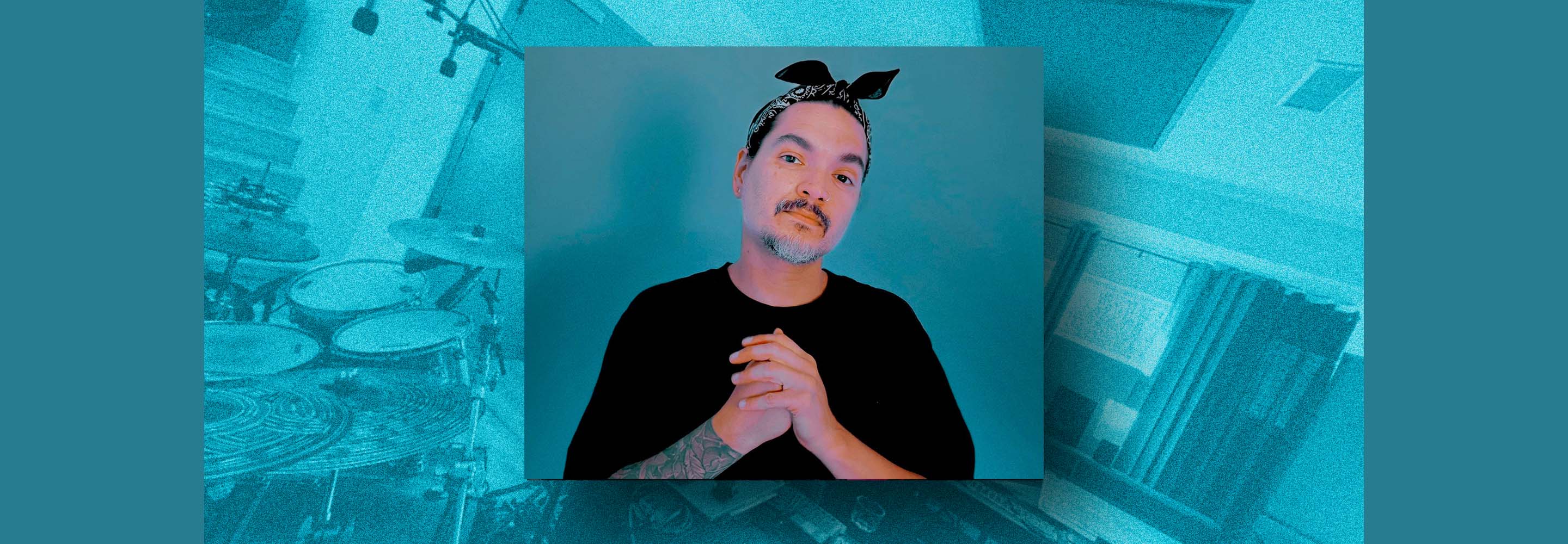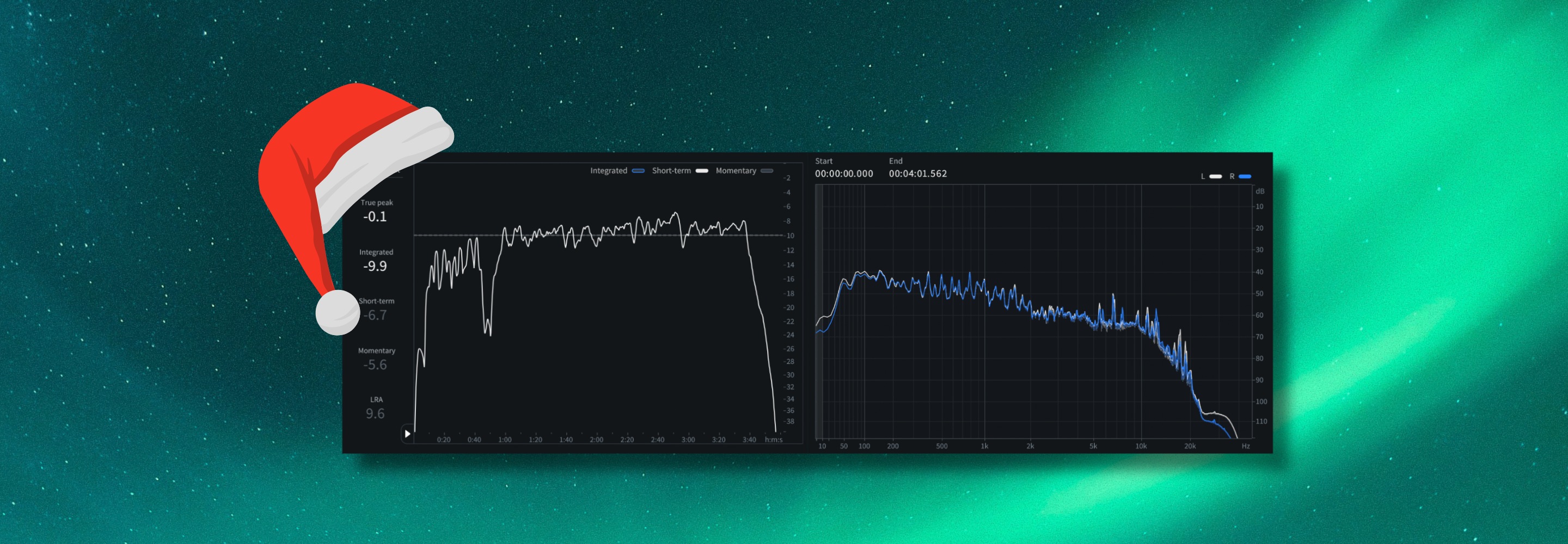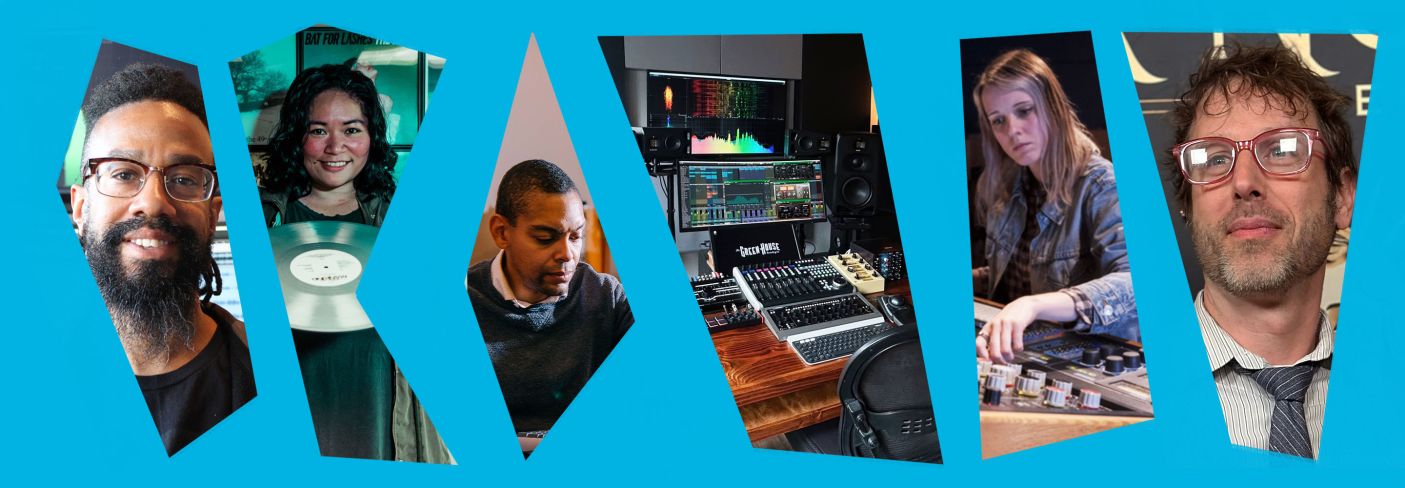
How to Become a Mastering Engineer
How do you become a mastering engineer? Critical listening, quality control, and artistic nuance are among the skills invaluable to being successful at the craft. In this article we’ll explore how to become a mastering engineer with tips from the pros.
What does a mastering engineer do? While to some it may seem like some “dark art,” a mastering engineer’s role, by definition, is pretty straightforward. A mastering engineer bridges the gap between the creative side of audio and the manufacturing/distribution process. The origin of the modern mastering engineer’s role came from the transfer engineer of the “old days.” The engineer would transfer the master tapes to the lacquer master, which was then used in the vinyl record making process.
As the music production process evolved, the role of the mastering engineer took on a more creative role. This meant that the skills and tools needed to do the job properly also developed and became more diverse.
Today, audio mastering is an integral part of every commercial music production, from Taylor Swift to Kendrick Lamar—and mastering engineers are the ones making the magic happen.
If you’re thinking, “wow, this sounds like a job for me,” then you’re in the right place to learn more. We’ll be talking to professional audio mastering engineers to learn how to become a mastering engineer, what skills you need to develop, and what tools you’ll need to get there.
Follow along with this article using iZotope


Ozone Advanced
What is a mastering engineer?
The role of the modern mastering engineer combines artistic taste, technical knowledge of audio formats and standards, and an understanding of signal flow and audio gear as it pertains to the mastering process to create a clear, dynamic, and commercially-standard audio production.
They are a critical listener, have objective ears, and polish and finalize mixes. These masters are destined for streaming services, vinyl, cassette, etc. The mastering engineer makes an album a cohesive whole, or makes a single stand out in a crowd. They use full-range monitors in an acoustically treated room to make sure any sonic issues can be addressed before the music makes it out into the world.
The engineer uses equalization, compression, and other tools to both correct and enhance the mix to reach the client’s final vision. Need to know more? Learn more in our mastering guide which goes further in depth the history and role the mastering engineer plays.
How do you become a mastering engineer?
It goes without saying that you don’t become an audio engineer overnight. Most engineers, even the ones at the top of their game, are always learning, exploring, and creating. To become anything—mastering engineer, writer, painter—it all takes practice, and a desire to improve. That being said, there are established fundamentals—both in skill and gear—needed to be a mastering engineer. Where you take those things, and how far you go is up to you!
What skills are needed?
The most important skills a mastering engineer must have are:
- Critical listening skills, ear training, a sense of nuance about music
- The ability to be objective, confident, and understanding with clients
- An understanding of audio production: signal flow, electronics, the recording and mixingprocess.
You don’t need to be an electrical engineer or have recorded a thousand bands, but knowledge of the music production process is a must. You’ll need to be able to communicate efficiently with your clients, sometimes read between the lines, and understand the difference between your own personal taste and the client’s wishes. And the discernment to know what to fix, and what to leave alone.
Critical listening is very important. Listen to music of all genres, find recordings you trust to keep on hand as references, work on describing the music you are listening to objectively—less concerned about if you personally like something, but rather…how does it sound?
There are instances where if you were the recording engineer or mix engineer you might also end up being the mastering engineer. This may be out of budget needs, time constraints, or just creative control. In this case, being objective after spending so much time with a project is even more important.
Paul “Willie Green” Womack, Producer/Engineer at Willie Green Music says,
“An important skill for a mastering engineer is the ability to be objective, particularly if you were involved in other parts of the project like recording, production and mixing. Having the objective ear of another mastering engineer can be valuable, but many engineers (including me) do their own mastering. I know how I want my records to sound, and I know how to get them there.”
This may mean making changes to how you work on a project. If you are wearing many “hats”—getting better at your mastering skills may help you become a better mixer, or tracking engineer by teaching you how to be self-critical and objective about your own work.
Paul goes on to say, “For this to work you have to keep an open mind and be honest about your earlier work. Don’t be embarrassed to adjust something you thought was a great idea before…Taking some time away from the project can help you get some perspective before putting on the finishing touches.”
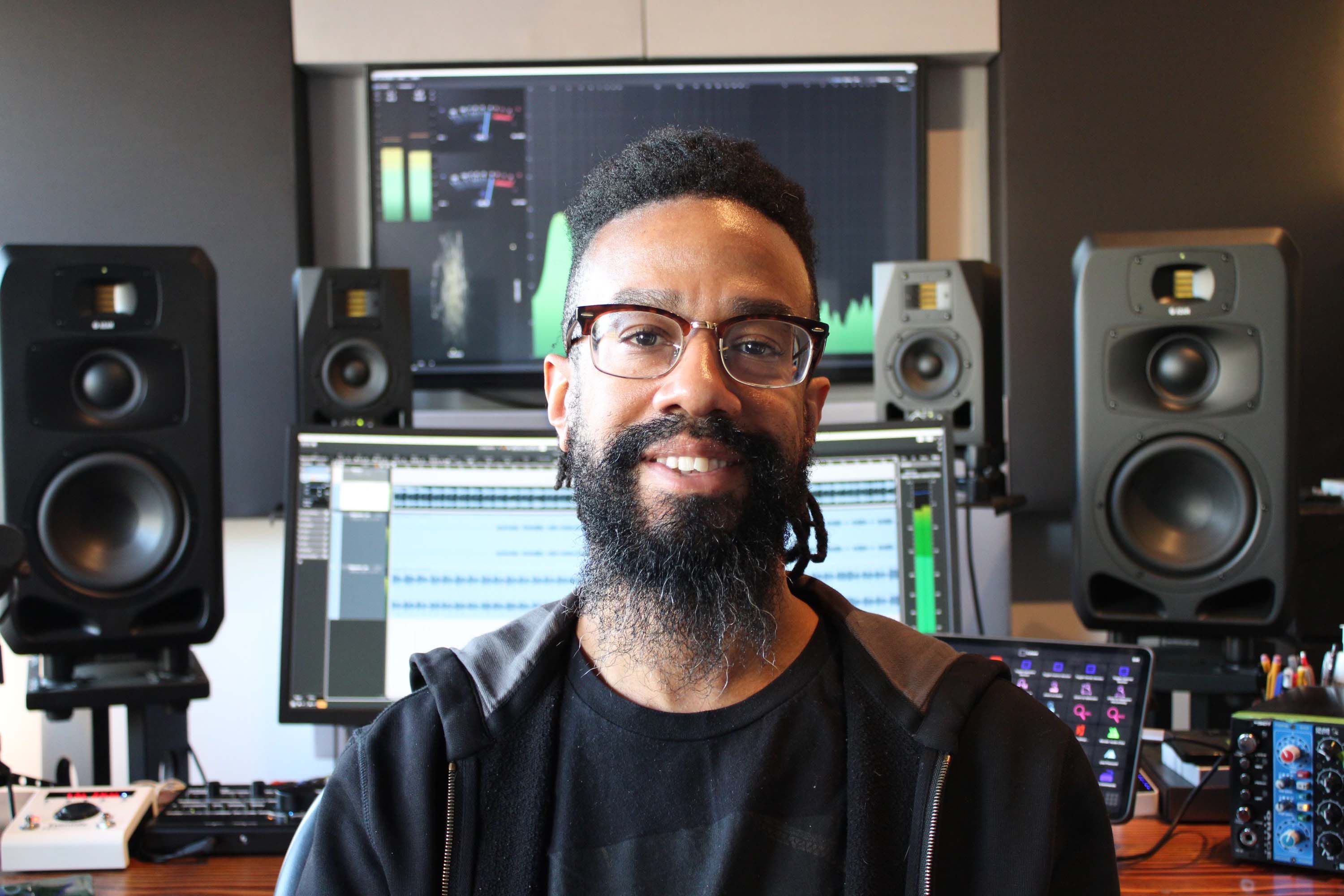
Paul “Willie Green” Womack
Not only are “soft skills” extremely important when learning to be a mastering engineer, technical skills are also part of the foundation. Understanding basic audio signal flow both in your outboard gear/monitor path as well as within your DAW is key.
There are a number of fantastic podcasts, and tutorials that go more in-depth about technical matters as well as life experiences from engineers and producers all across the audio world. Are You Listening? is iZotope’s series that teaches you the basics of audio mixing and mastering, a good springboard to start from.
Tools and skills go hand in hand…other good podcasts include Working Class Audio, Pensado’s Place, Signal to Noise Podcast, Tape Op Podcast, Master your Mix Podcast…and many more.
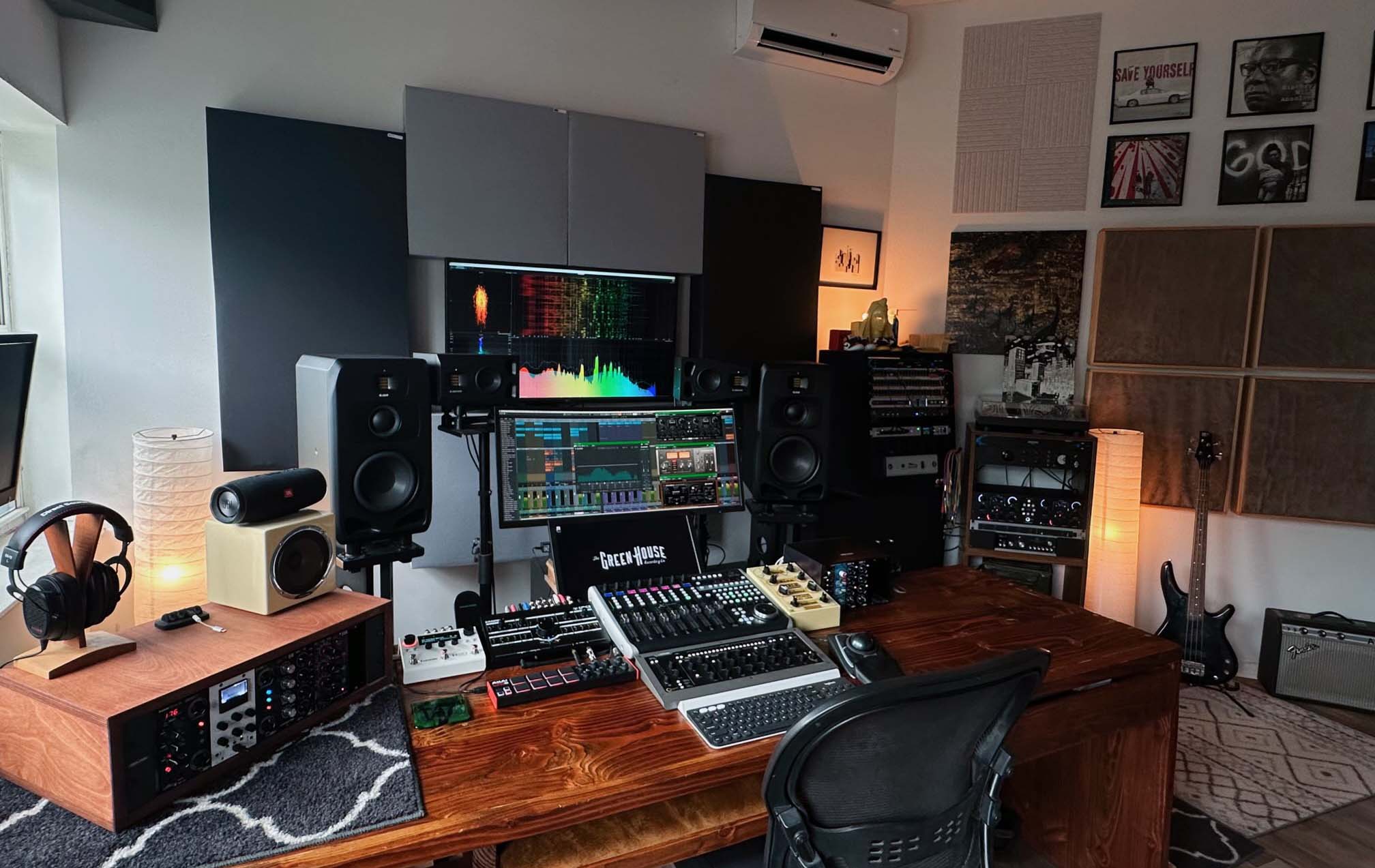
Paul “Willie Green” Womack's mastering studio
What are the audio-specific tools necessary to be a successful mastering engineer?
At its simplest, these are some of the tools necessary to be a successful mastering engineer:
- Ears
- A well-treated room
- Audio hardware and software that helps you do your job (DAW, plugins, outboard compressors and EQs, etc.)
The room is mission critical when it comes to mastering. If you can’t hear an accurate representation of low end and top end, and everything in between—how can you be expected to use noise reduction tools such as iZotope RX to remove mouth clicks or an insistent buzz or how much sibilance to de-ess?
Ian Sefchick, mastering engineer at Dark Sky Mastering gives this advice:
“By far the most important element needed to produce a good master is the listening environment. A frequency flat, non reflective room and speaker system. The equipment required for a low noise, high fidelity sound reproduction these days is easy to acquire. Affordable speakers that sound great are abundant as well. The problem is, most likely all this equipment is placed in a small room, possibly with some acoustic paneling on the walls to help with echo. Under 500 Hz and a small room starts to distort, amplify and diminish lower frequencies in all kinds of unpredictable ways. As amazing as our brain and hearing are, it's extremely difficult to compensate for that kind of sound distortion. It's very frustrating to fight that.
There are ways to combat low frequency but it's not cheap or easy. The two common routes are large expensive bass traps or special subwoofers along with software to counteract the problem frequencies. It's surprising how much mass you need to attenuate a 40 Hz wave. A box the size of a small refrigerator filled with sound absorbing material may be needed. Even 4" thick acoustic panels will only attenuate high-mid frequencies.
Mastering is meaningless without a proper listening environment. To be an effective mastering engineer you have to take the guesswork out of listening. You can argue about creative direction, but the reference point needs to be real.
Once you are secure in your room’s honesty, gather the digital or analog gear needed to do work efficiently and within the scope of your budget.”

Ian Sefchick
Jett Galindo, mastering engineer at The Bakery in Los Angeles, says:
“First, you need a digital audio workstation (DAW) that allows you to record, edit, and process audio. However, it's important to choose a DAW that suits your needs and budget. Options range from free, open-source DAWs like Audacity to popular professional DAWs such as Logic, Pro Tools, Cubase, and Reaper, to name a few. As you become more serious about mastering, you may want to invest in DAWs with more mastering-centric features such as album assembly and metadata embedding. Examples of mastering DAWs include WaveLab, Pyramix, Sadie, and Soundblade.
It’s important to understand what you’ll be doing as a mastering engineer, and purchasing tools that match the work you’ll be doing.”
Jett continues, ‘The three main techniques to master audio are EQ, compression, and limiting. iZotope's Ozone is a great starting point as it features modules that specialize in each of these areas. Starting with software plugins before investing in audio processing hardware is recommended for beginners. As you gain experience and have a better understanding of what tools you need, you can decide whether investing in audio processing hardware is necessary for you.”
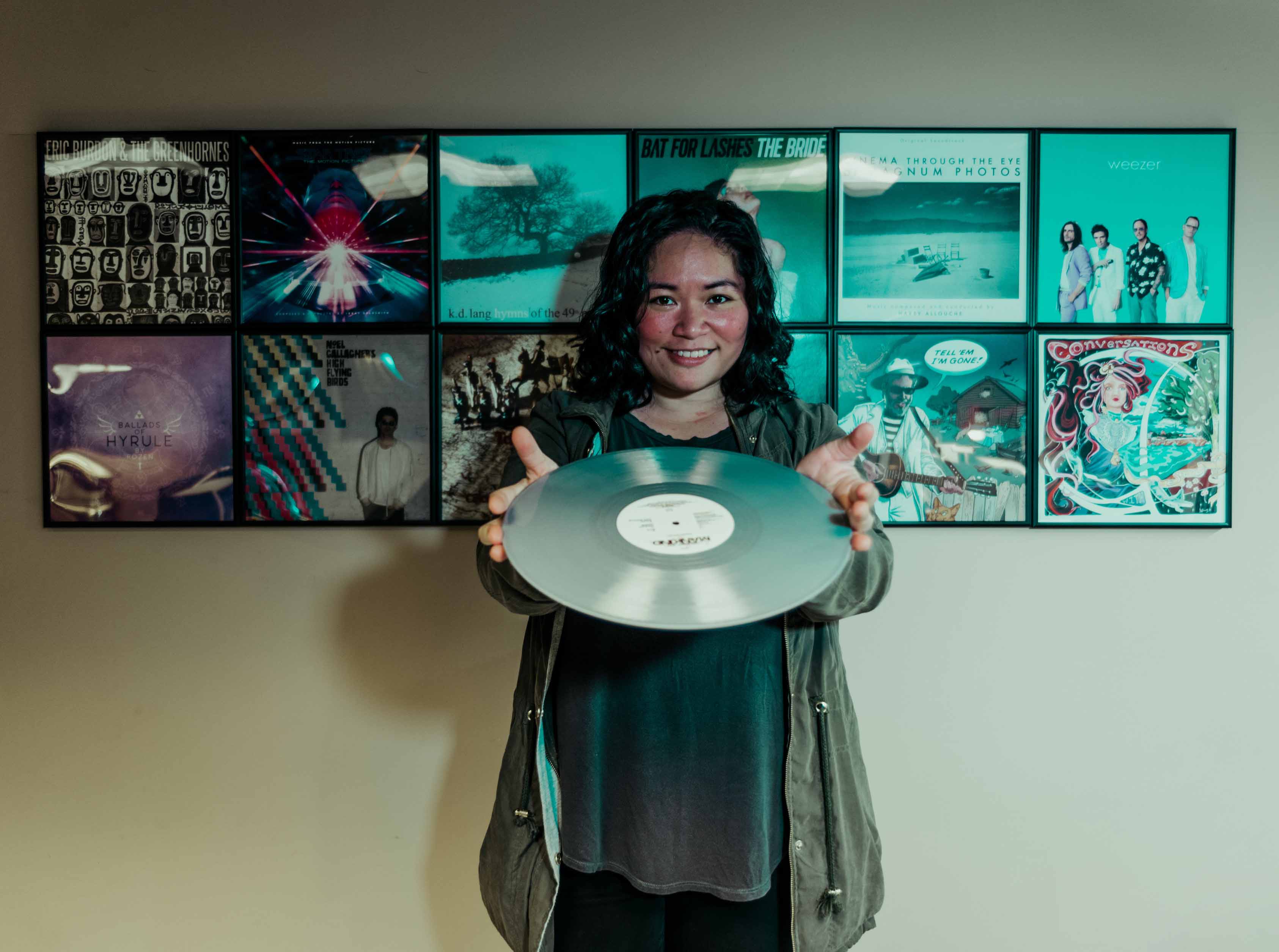
Jett Galindo
How do you practice your craft and expand your portfolio?
Much like getting started in most career paths, small steps will lead to bigger ones. If you’re already part of a creative community, offer services to friends—ask for their feedback on their mixes, collaborate on listening sessions with them, get to know what you’re listening to and how to talk to artists.
A few other ideas:
- Mentorships and internships, where applicable
- Charging appropriately for your skill level
- Learning how to your tools correctly
Mentorships and internships can be an invaluable part of the engineering process, getting to know how established mastering engineers work. They might come fewer and farther between than traditional internships at recording studios. The scope of the work is more narrowed; instead of setting up 20 microphones, helping with soundcheck, striking—things that benefit from the “more hands make light work” mentality—you might be opening a DAW template, loading in songs, making sure the mixes are ready to go, cleaning a tape machine, and listening to the final masters for errors, etc. This work is just as important, but it is less physical, so many mastering engineers that work for themselves will do it themselves.
Adam Gonsalves, Senior Mastering Engineer at Telegraph Mastering in Portland, Oregon, agrees:
“Seek out guidance or perhaps a mentorship from a trusted mastering engineer. It will save you countless hours and mistakes. While you are absorbing knowledge from reliable sources, work on friend’s projects and sharpen your skills. You get good at what you practice and the more you master the better your masters will sound.”
Most mastering engineers (myself included) are kind human beings who like sharing their knowledge. Even if a mastering engineer doesn’t have a true assistantship or internship to offer, most will let you listen in on a session, give you advice if asked, and be generally supportive.
While you’re going through this process, it’s a good time to understand how engineers in the community charge for their services, and what is appropriate to charge given your skill set and what you’re comfortable asking for. This number usually changes over time, and it’s not at all unusual to do free work for friends or low cost until you feel you’re solid enough in your skills to ask for money. Everyone has a different way of handling the money side of audio engineering —it’s not always an easy thing to talk about or be fair with—but like in any business, it’s important to be fair to the client, as well as to yourself.
Finding a process that works for you, both in the creative/technical side of the field as well as the business side —that’s what’s important, Ask questions, ask other engineers with more experience, be humble, be creative. There’s no one way to become a mastering engineer.
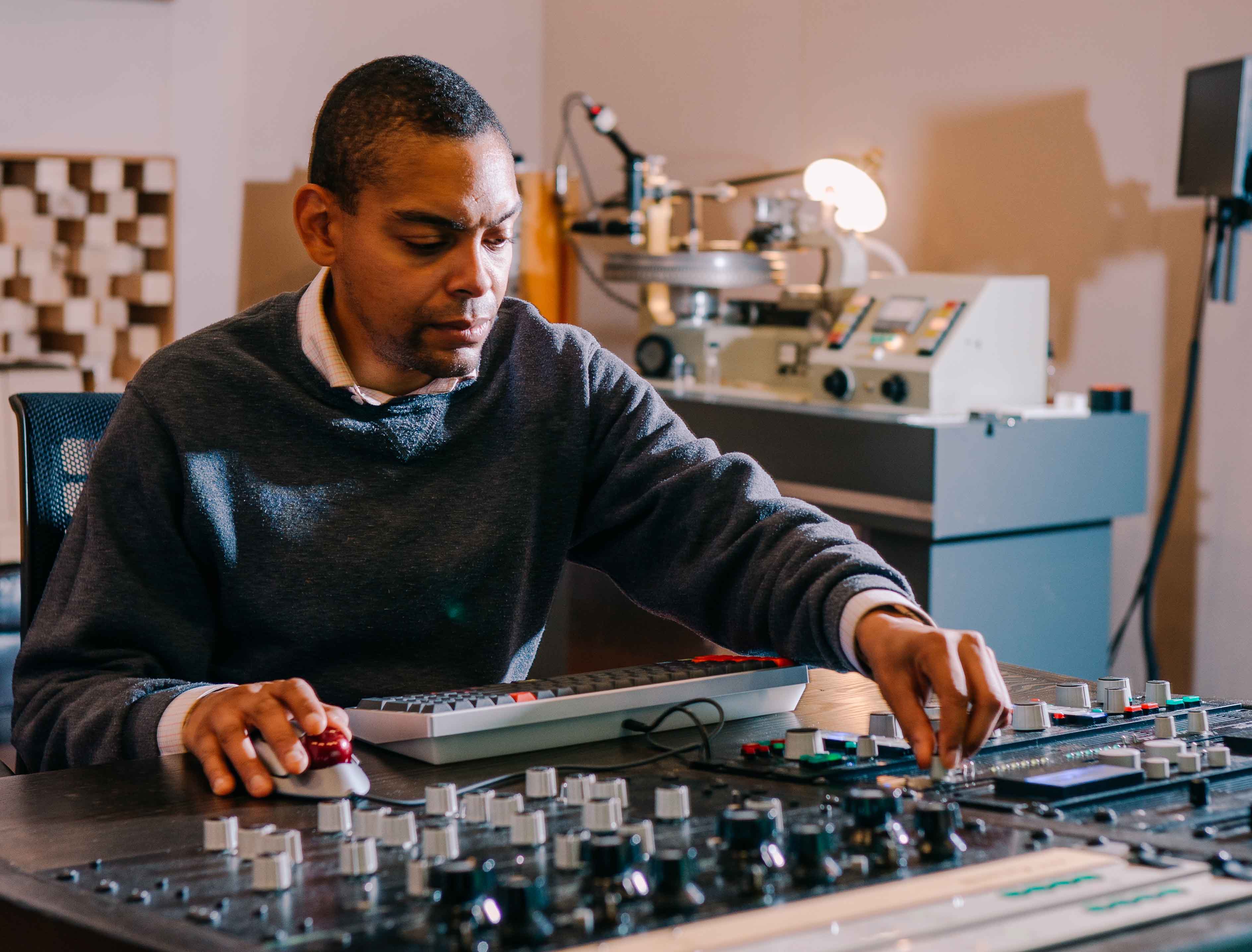
Adam Gonsalves
Adam goes on to say, “Becoming a mastering engineer is not just assembling tools suitable for mastering. That’s easy, high quality signal processing from companies like iZotope is ubiquitous. Getting the right tools has never been easier. Mastering isn’t a pile of gear or a stacked plugin folder though, it’s a process, and mastering engineers occupy a unique role. Too often the focus is on things and not on how and when to properly use them.”
How important is networking in building your client base?
Networking events, while perhaps not as critical at the beginning of your journey to being a mastering engineer, will become more important as you gain experience. Not only do they allow you to meet different engineers and artists for collaboration, but they allow you to keep abreast of new technological and creative trends in the music industry.
There are a few ways you can go about doing this:
- Being part of a community—this can include local artist nights, regional music tech meetups, etc.
- Join professional organizations: National Academy of Recording Arts and Sciences (Grammys), Audio Engineering Society, etc.
- Joining online communities via social media
Perhaps the most organic way to grow your client base and be a part of a technology community is to go to local events. This includes going to shows, meeting artists, engaging with the creative tech community, whatever opportunities you are able to find in the area you live. It’s important to get to know and learn about your community from a business perspective! You never know what kind of connection you can make.
In certain places, this might be more difficult! That’s where professional organizations and online communities can help. The Audio Engineering Society, and Recording Academy are two such professional organizations. There aren’t too many audio-specific organizations and those two are the biggest ones.
Mari Hutten, mastering engineer based in Toronto, Canada at Lacquer Channel Mastering, says:
“Being an AES member allows you to have access to papers on audio, and there are many cases where I downloaded papers on acoustics and electronics to improve things in my studio. These papers are accepted by the community, and go through a peer review similar to those of other recognized scientific organizations…Another option of networking and exchanging knowledge is being part of Facebook and Discord groups.”
The creative world is extremely relationship-based. Interpersonal skills are important no matter what field you work in, but in the creative field it can feel even moreso. You’re dealing with the vulnerabilities of being human, of creating. You need to be able to make people feel at ease, empathize. As you gain experience in your craft, understanding the subtleties of human interaction will become more and more important.
Mari continues, “Your main focus should be providing the best service you can, being patient, honest, and having integrity. Avoid talking about other people negatively, criticizing or complaining about past clients, and many other actions that may damage your reputation. This goes for any business, in reality, but when it comes to music; it's essential. Music is extremely trust-based…The trust of your friends and their recommendations for new clients that will trust you as well.”
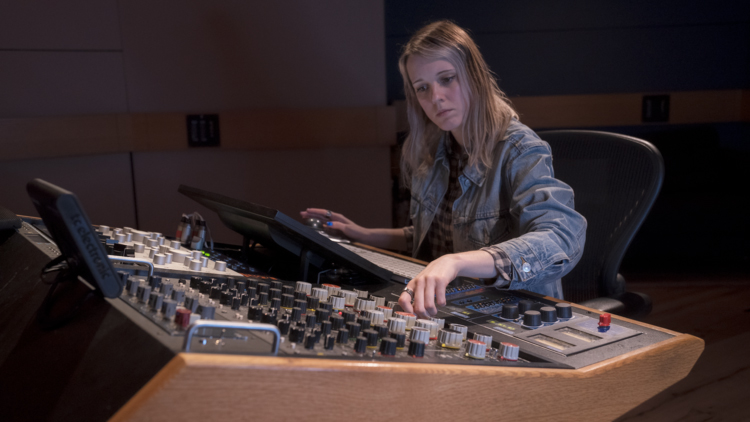
Mari Hutten
Be an engineer that artists can come to for advice, a second opinion on mixes—even before mastering takes place—this will help you gain clients and a solid reputation in the industry.
Continue to learn and grow: never stop learning!
As said in the beginning, part of being a good artist and engineer (and also more broadly, a good human!) is to continue to learn and grow at the things you love. Understanding the vinyl format, for example, is incredibly important for a mastering engineer, as you—most likely—will be delivering the final masters for the cutting engineer to cut from! Or perhaps, you’d like to learn how to cut lacquer masters. Understanding your craft fully will help you reach that next step.
A few last words from some of the engineers we heard from in the above article:
Mari: “When it comes to mastering, being knowledgeable of what's available in consumer technology is also extremely important…we need to know how they will reproduce the songs we mastered so they sound as good as possible in every media.”
Paul: “My advice for young engineers is to learn to love the process, even the mundane things like vocal tuning and editing. When you enjoy even the little parts of the job, every day at work is a good day.”
Jett: “Maintain active collaborations with others! I can confidently say that it has been one of the most influential aspects of my journey as a mastering engineer. By continuously mastering music created by other individuals, you not only enhance your ability to critically analyze and assess music, but also establish your worth and longevity as a mastering engineer within a flourishing community of artists through positive word-of-mouth.
Ian: “More than any piece of equipment, the listening environment will make you a better mixer or mastering engineer quicker. Having a room where the bass is clear and precise is such a luxury. Walking into a sound treated, flat room, is like clearing the fog from your glasses. You can finally make decisions with certainty, you can be creative and confident.”
Start your journey on becoming a mastering engineer
The road to becoming a mastering engineer can vary depending on the background a person has—if you’re already in the music industry as a tracking or mixing engineer, it might take a change in perspective, learning to listen to music a little differently. If you’re new to the industry, or just starting out, you might need to learn how to listen critically, treat your room, and start from a beginner's perspective. Both of these paths are valid! If you’re willing to put the hours in, be honest and open with yourself and your clients—you’ll do just fine.
To learn even more about mastering, check out the free iZotope video series Are You Listening?that explores the art and science of mastering music.

